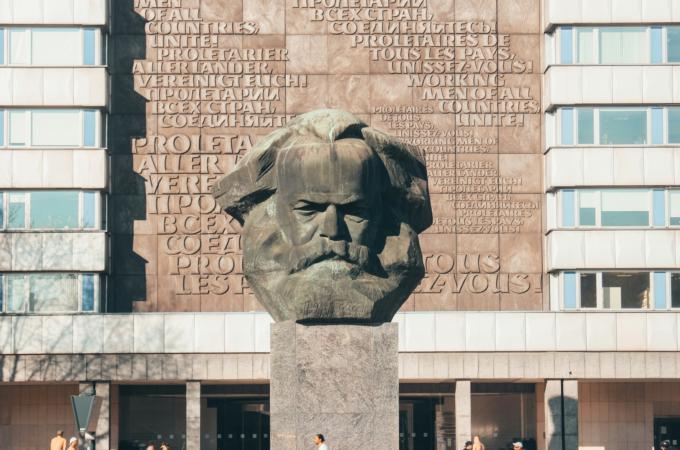The alarming rise of cultural Marxism in America
Some years ago, Lee Edwards, a veteran conservative writer and a friend of mine, launched an organization, the Victims of Communism Memorial Foundation, dedicated to "commemorating the more than 100 million victims of communism around the world and pursuing the freedom of those still living under totalitarian regimes."
Today, Victims of Communism is going great guns, with a small but capable staff and a number of programs and projects designed to make people aware that Marxist communism not only was but still is a really nasty piece of work.
It's a message that needs frequent repeating. Especially now, when Marxism is alive and well on many college campuses and a disturbing presence in the movement protesting -- with good cause, to be sure -- serious abuses that have festered too long in America.
Lately, in the pages of the Fellowship of Catholic Scholars Quarterly, I came across an article that sheds interesting light on these matters. The work of Father Joseph Koterski, SJ, a former president of the Fellowship and a philosophy professor at Fordham University, it analyzes the "worrisome phenomenon" of what he calls "cultural Marxism."
Noting that even to speak critically of Marxism is today regarded as "illiberal" in some academic circles, Father Koterski reports having used some of his pandemic-induced leisure to read "Witness." For people with short memories, the book, a recognized classic, is the 1952 autobiography of Whittaker Chambers, the ex-communist whistleblower who caused a sensation in the late 1940s by disclosing that State Department official Alger Hiss was a Soviet spy. Controversial at the time, Hiss's guilt is now recognized as established fact.
Among the book's merits, Father Koterski says, Chambers explained "perhaps better than anyone else" why some well-intentioned people become communists.
"In ways that never cease to surprise," he writes, "educated people have regularly found it possible to overlook the use of secret police, re-education camps, and the techniques employed for arranging a coup d'etat when they become convinced that only the human mind is capable of changing a world that badly needs changing....This materialistic vision makes it possible to rationalize all sorts of bloodletting out of the conviction that this will end 'the bloody meaninglessness of man's history.'"
And so, he says, violence is excused as "an inescapable tactic" of social transformation. Even worse, he adds, is the harm done by media reporting that "incites or approves" mob action, which ultimately threatens the existence of a free press itself.
Father Koterski also cites an influential article called "Repressive Tolerance," by Marxist intellectual Herbert Marcuse, whose ideas played an important part in the campus uprisings of the 1960s. Marcuse argues for a form of selective toleration allowing free +rein to the Left while at the same time "restraining" the Right.
Similarly, he says, the ideas of New Left thinker Theodor Adorno -- who dismissed as "pathological phenomena" such things as parenthood, family pride, patriotism, love of God, and traditional gender roles -- have become "standard parts of [the] agenda pursued" in American academia today.
Chambers, who embraced Christianity after abandoning Marxism, said the heart of communism was its vision of "man's mind displacing God as the creative intelligence of the world." In this way, it exalted humanity "by the simple method of denying God."
There is no doubt that as individuals and a nation, we need to do a better job of practicing justice and charity. But we also need constant reminders of horrors that witnesses like Whittaker Chambers and groups like Victims of Communism caution us not to forget.
- Russell Shaw is the author of more than twenty books. He is a consultor of the Pontifical Council for Social Communications and served as communications director for the U.S. Bishops.



















